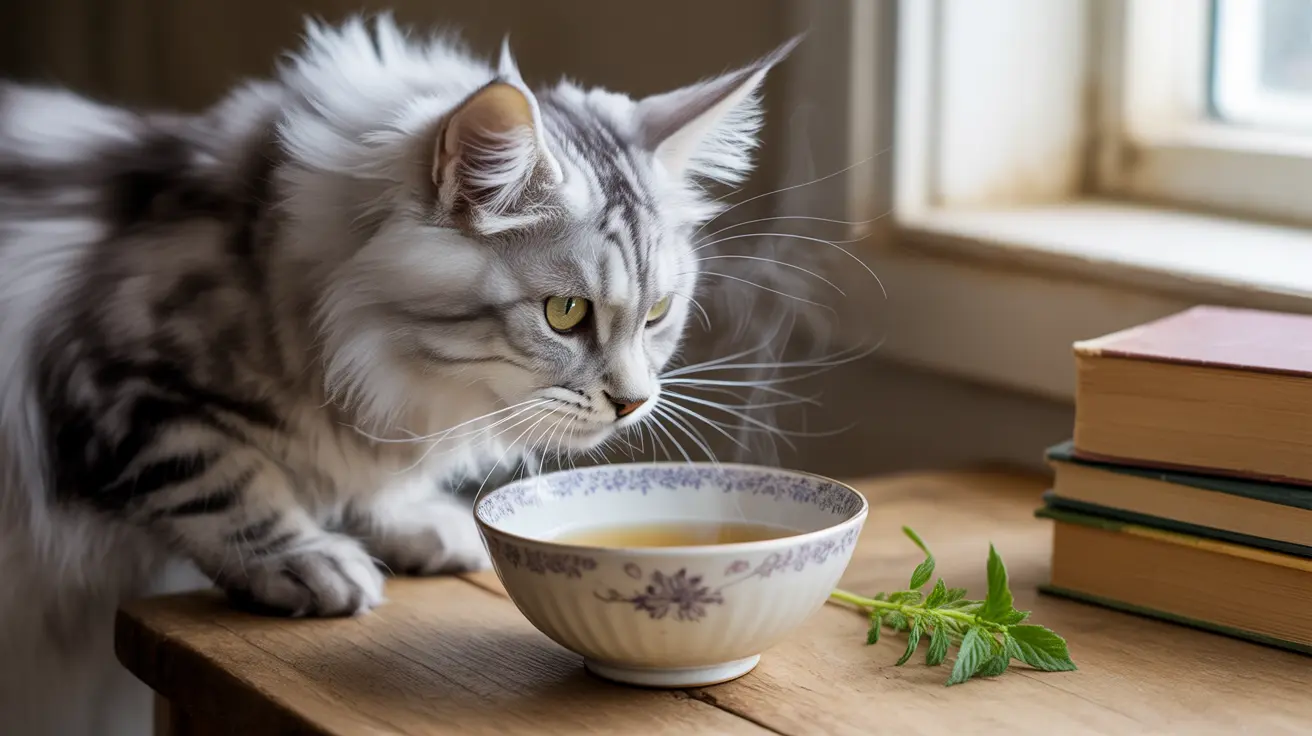If you've ever wondered about treating your feline friend to something special, learning how to make catnip tea might be the perfect solution. This natural beverage, made from the Nepeta cataria plant, can provide both entertainment and potential health benefits for your cat when prepared correctly.
In this comprehensive guide, we'll explore everything you need to know about creating safe and effective catnip tea for your furry companion, including proper preparation methods, dosage guidelines, and important safety considerations.
Understanding Catnip and Its Effects
Before brewing your first batch of catnip tea, it's essential to understand what makes this herb so special. Catnip contains nepetalactone, a natural compound that affects roughly 50-75% of cats through their vomeronasal organ. This interaction can trigger various responses, from excitement and playfulness to relaxation and calmness.
The effects typically last between 5-30 minutes, varying depending on whether the catnip is sniffed or ingested. When consumed as tea, cats often experience more calming effects compared to the stimulating response from sniffing dried catnip.
Step-by-Step Catnip Tea Preparation
Gathering Your Materials
- Fresh or dried organic catnip leaves
- Clean, filtered water
- Tea strainer or fine mesh sieve
- Clean pot for boiling
- Cat-safe serving dish
Brewing Instructions
- Boil 1 cup of fresh water
- Add 1 teaspoon of dried catnip (or 2-3 fresh leaves)
- Steep for 5-10 minutes
- Strain thoroughly to remove all plant material
- Cool completely to room temperature
Safety Guidelines and Proper Dosage
While catnip tea is generally safe, moderation is crucial. Start with small amounts - just a few tablespoons - to observe your cat's reaction. Always ensure the tea has cooled completely before serving, and never force your cat to consume it if they show no interest.
Monitor your cat closely after their first exposure to catnip tea. Some cats may experience mild digestive upset if they consume too much, so it's important to start slowly and adjust the amount based on their individual response.
Benefits and Uses
Physical Benefits
- May help reduce anxiety and stress
- Can promote better sleep
- Potentially aids digestion
- Encourages hydration
Behavioral Benefits
- Provides mental stimulation
- Creates enrichment opportunities
- Can help with training and positive reinforcement
- May ease transitions during stressful events
Storage and Freshness Tips
Store any unused catnip tea in an airtight container in the refrigerator for up to 48 hours. Always discard any leftover tea that shows signs of spoilage or has been left out at room temperature for more than a few hours.
When to Avoid Catnip Tea
Certain cats should not be given catnip tea, including:
- Kittens under 6 months old
- Pregnant or nursing cats
- Cats with known sensitivities or allergies
- Cats with certain medical conditions (consult your vet)
Frequently Asked Questions
How do I make safe catnip tea for my cat at home?
Follow the basic recipe of 1 teaspoon dried catnip per cup of boiling water, steep for 5-10 minutes, strain thoroughly, and cool completely before serving. Always use fresh, organic catnip when possible.
What are the benefits of giving catnip tea to cats?
Catnip tea can help reduce anxiety, promote relaxation, encourage hydration, and provide mental stimulation. It can also be used as a training aid or to help cats cope with stressful situations.
How much catnip tea can I give my cat without causing side effects?
Start with just a few tablespoons and observe your cat's reaction. Limit servings to once or twice per day, and discontinue use if you notice any adverse effects like vomiting or diarrhea.
Is catnip tea safe for kittens, pregnant, or nursing cats?
No, catnip tea should not be given to kittens under 6 months old or pregnant/nursing cats. Always consult with your veterinarian before introducing catnip tea to cats with special conditions.
Can humans drink catnip tea and what are its health benefits?
Yes, humans can drink catnip tea. It's traditionally used as a mild sedative and may help with sleep, anxiety, and digestive issues. However, consult with a healthcare provider before adding it to your routine.
Remember, while catnip tea can be a wonderful treat for your feline friend, it's important to introduce it gradually and always prioritize your cat's safety and comfort. Pay attention to their individual response and adjust accordingly to ensure the best experience for your beloved pet.






